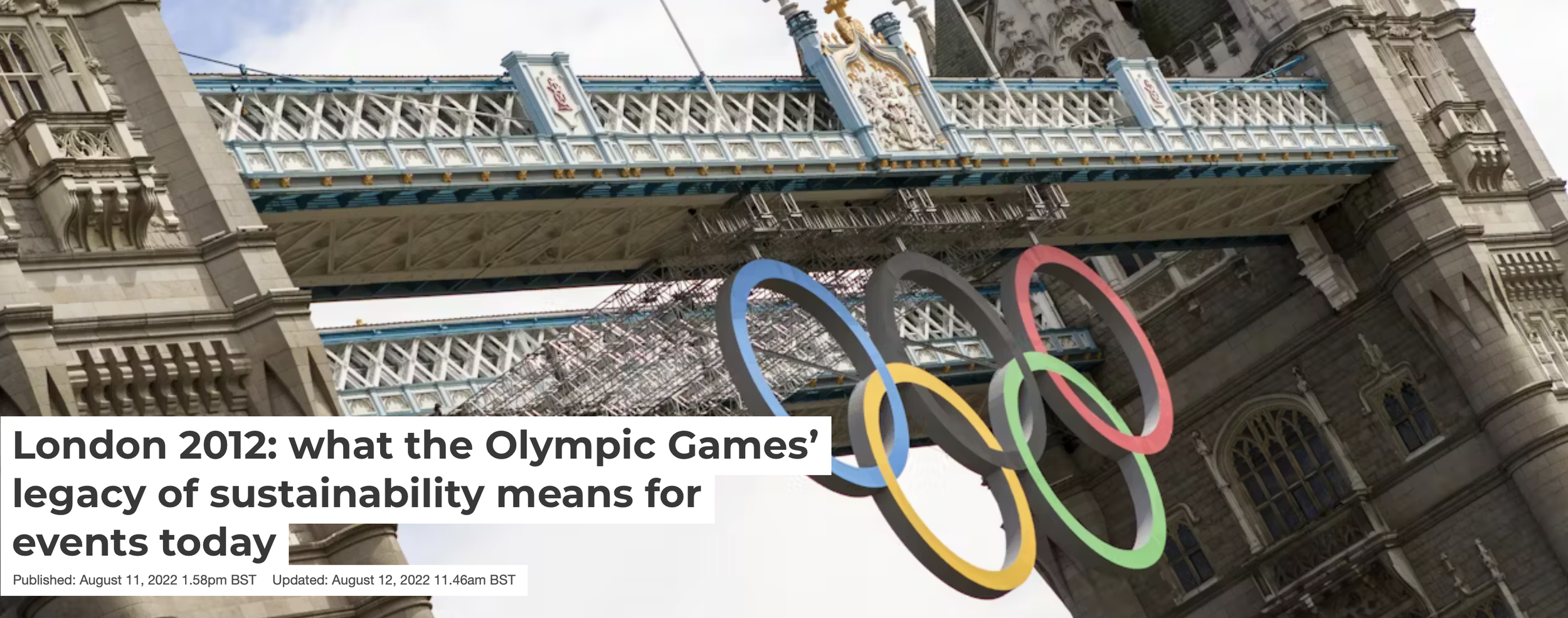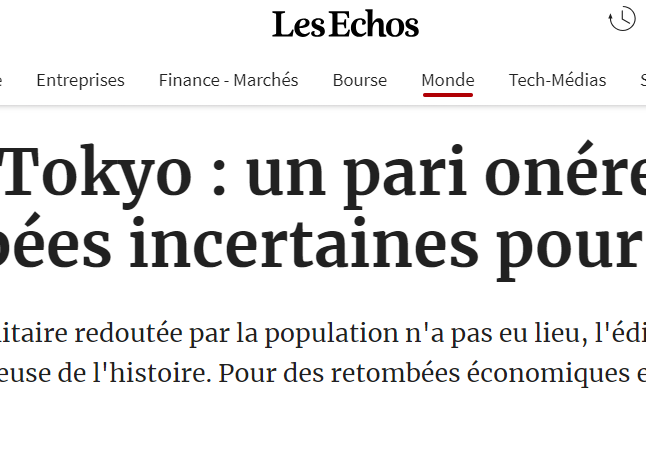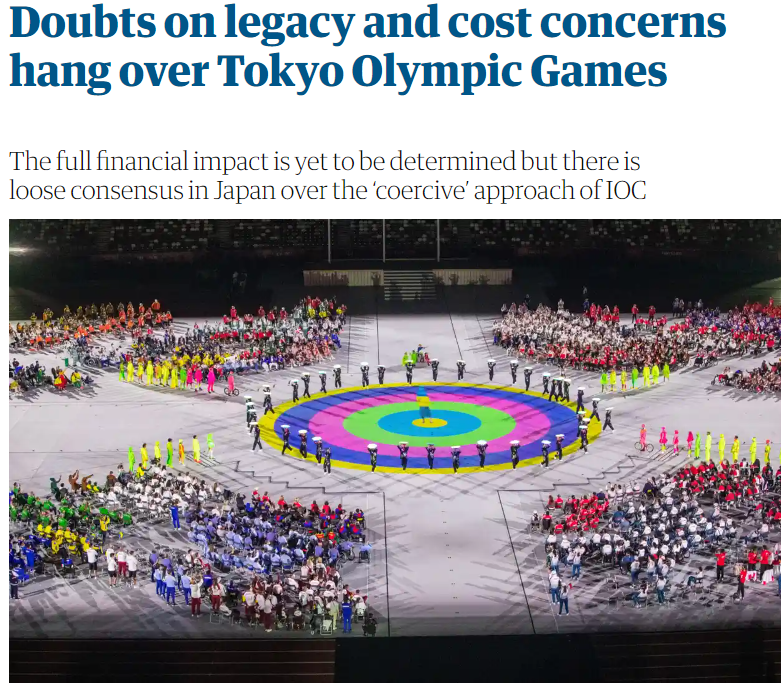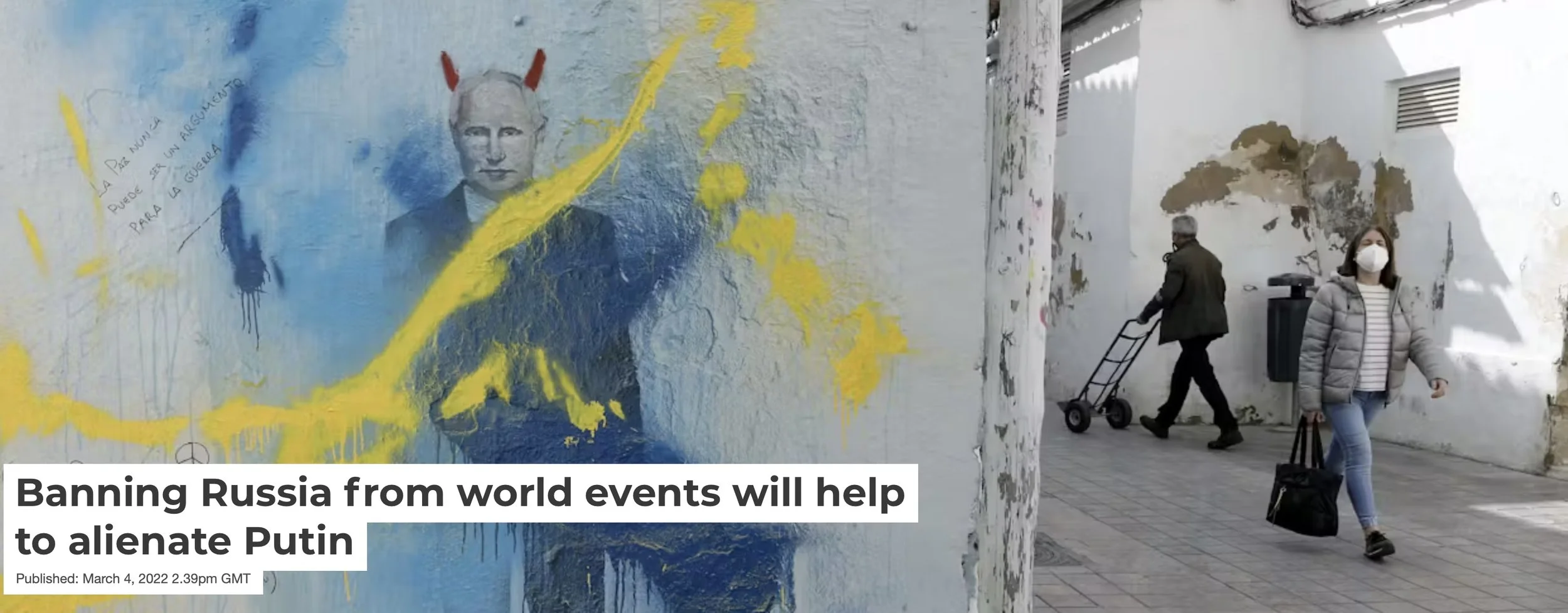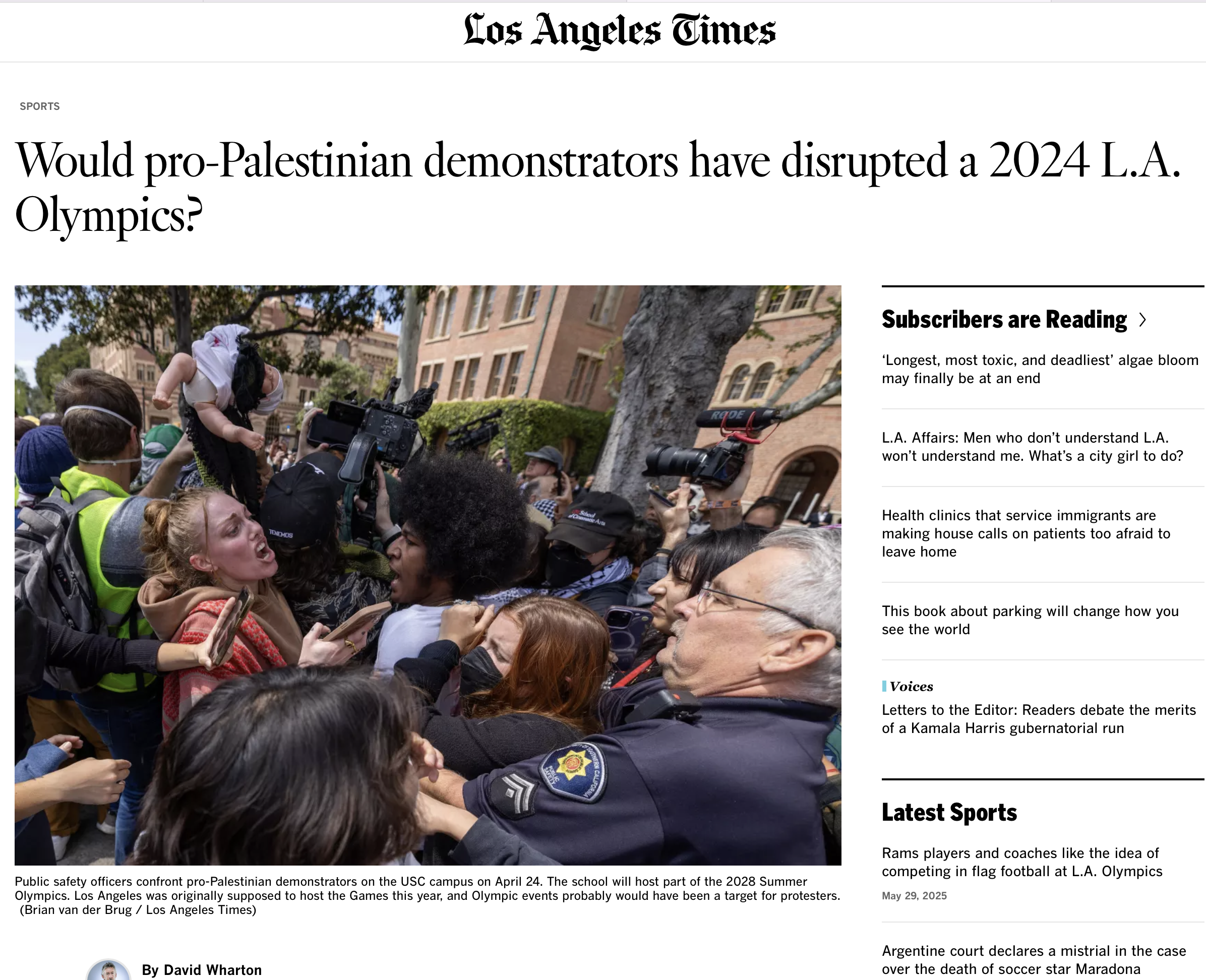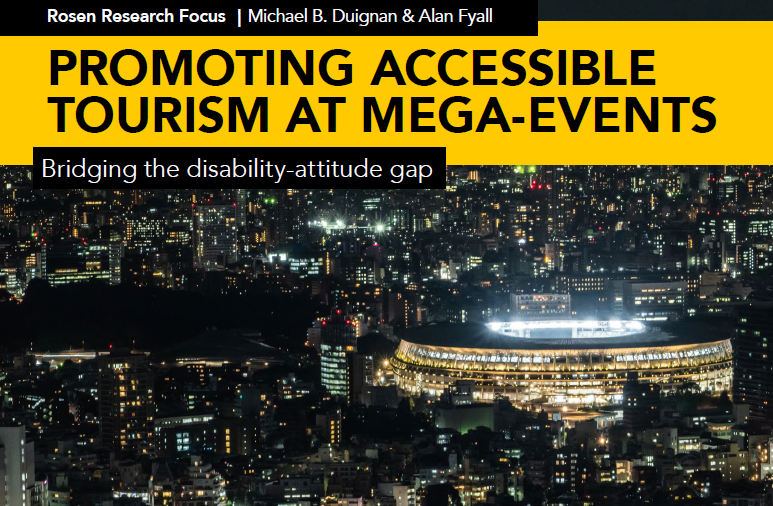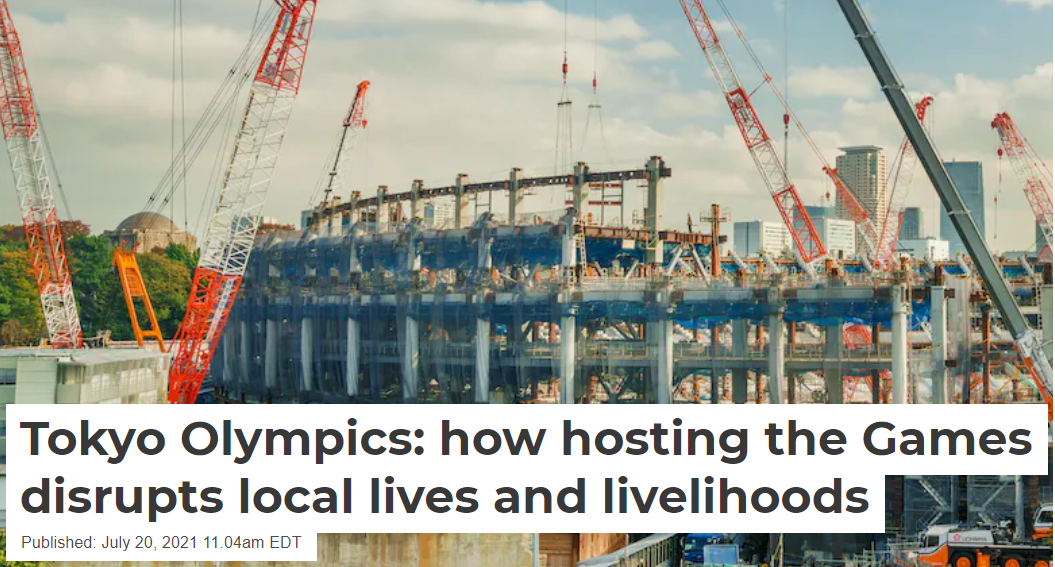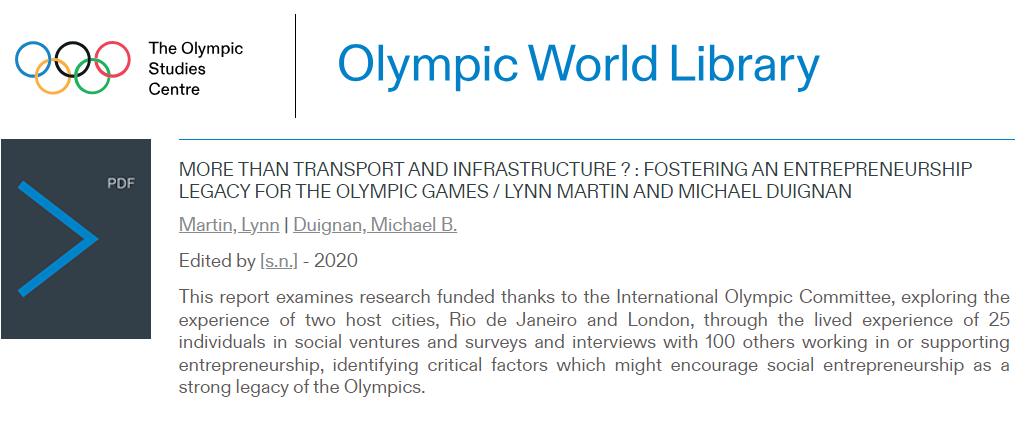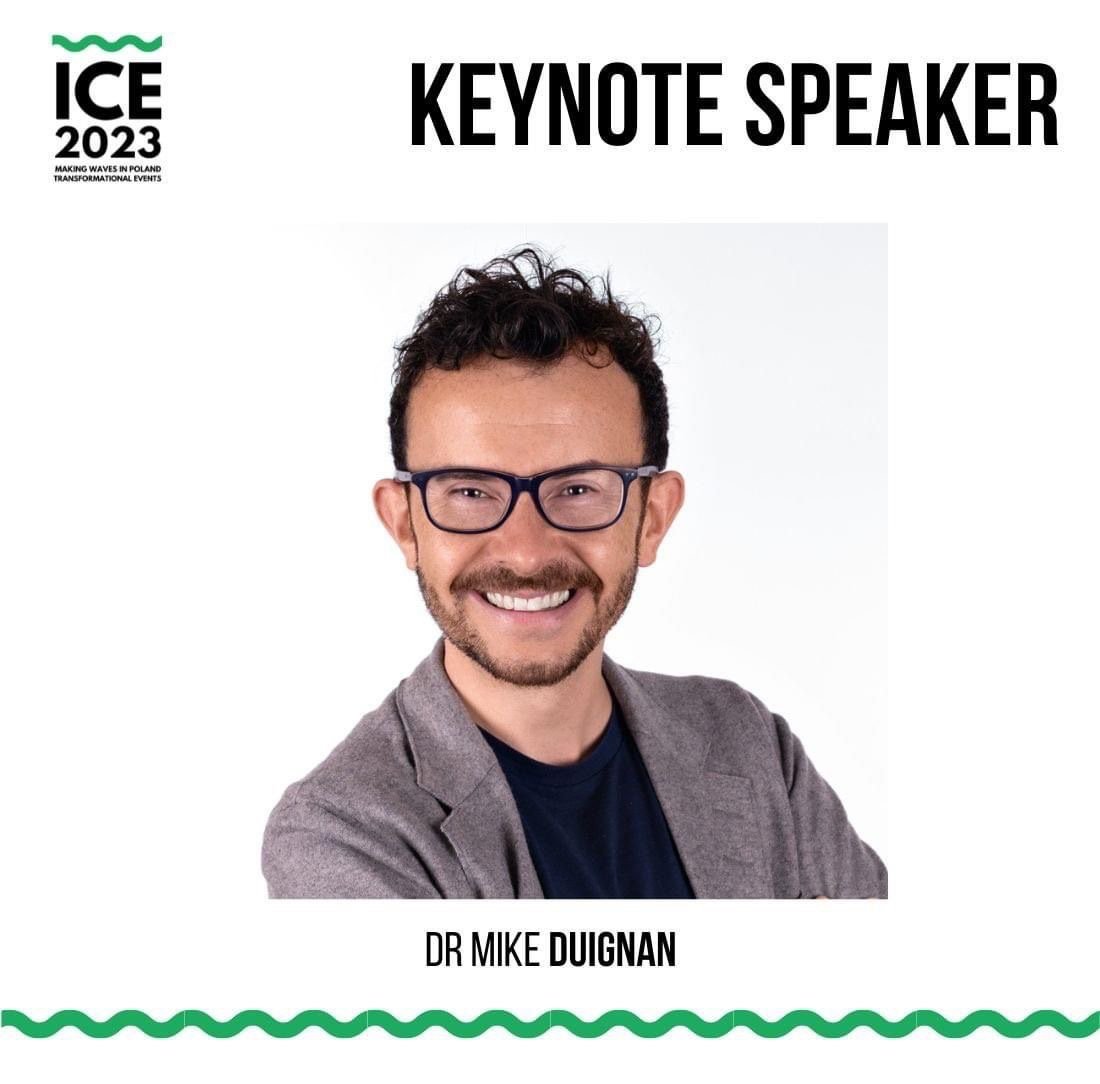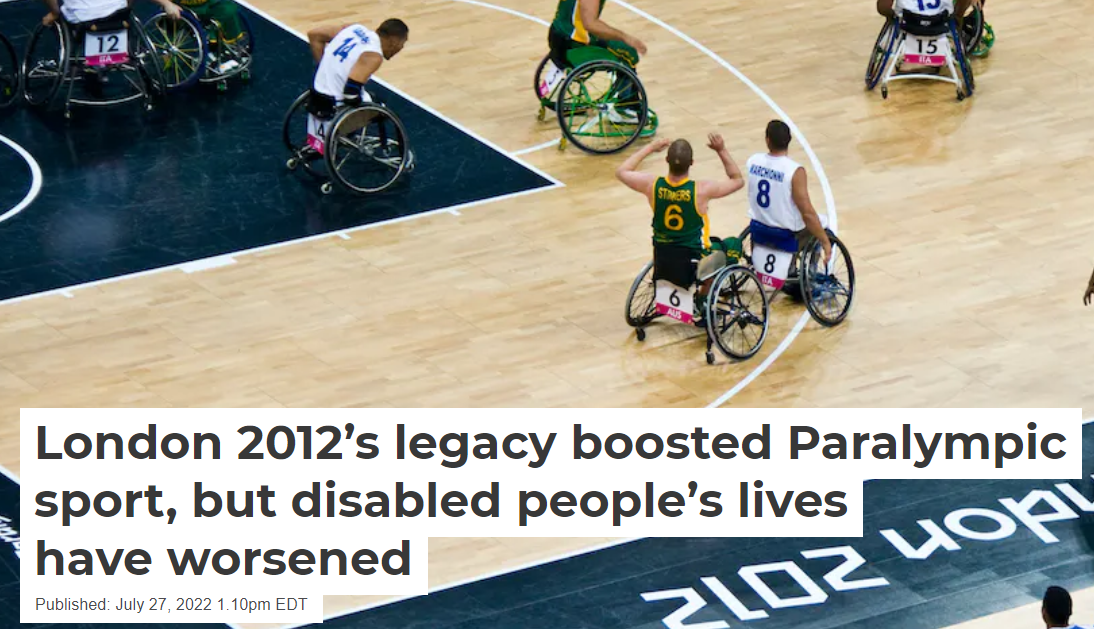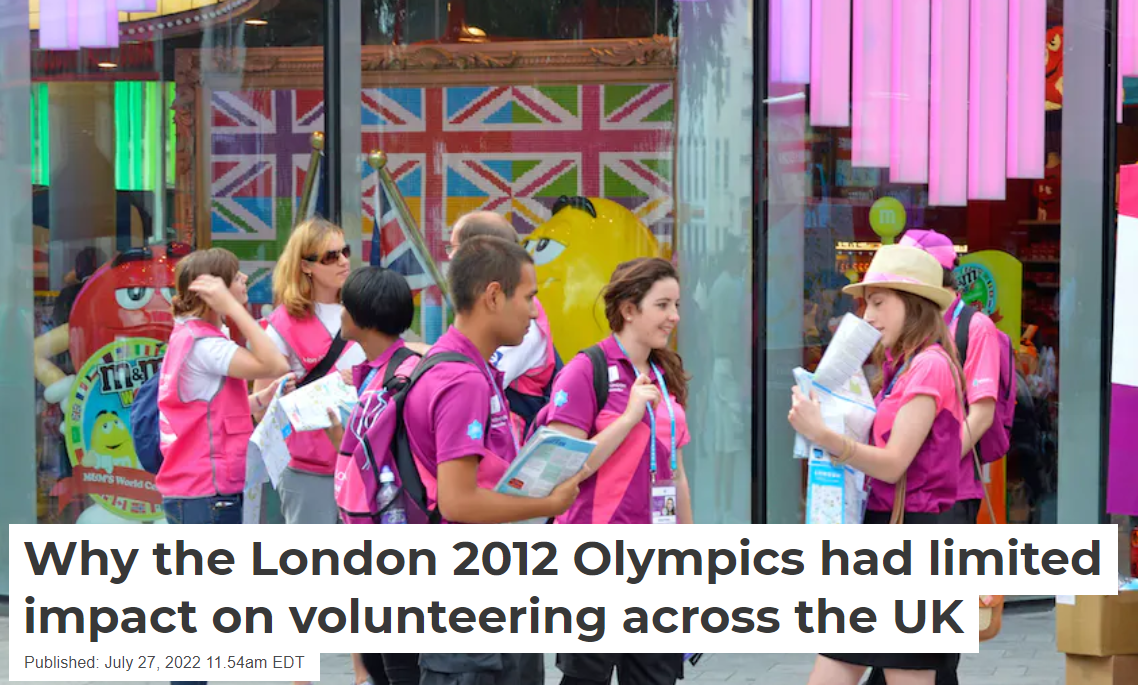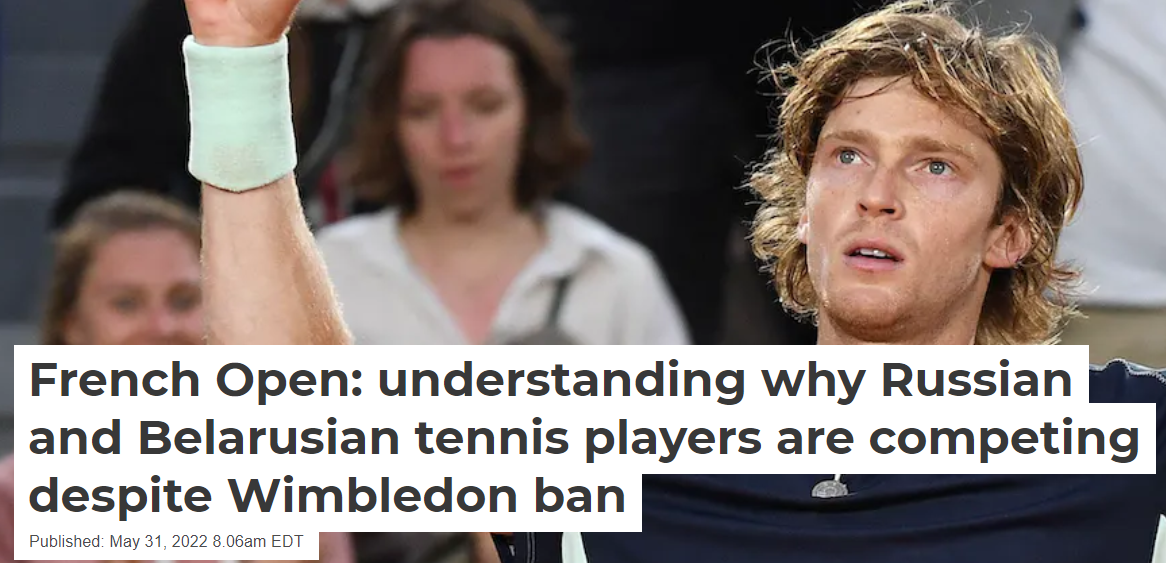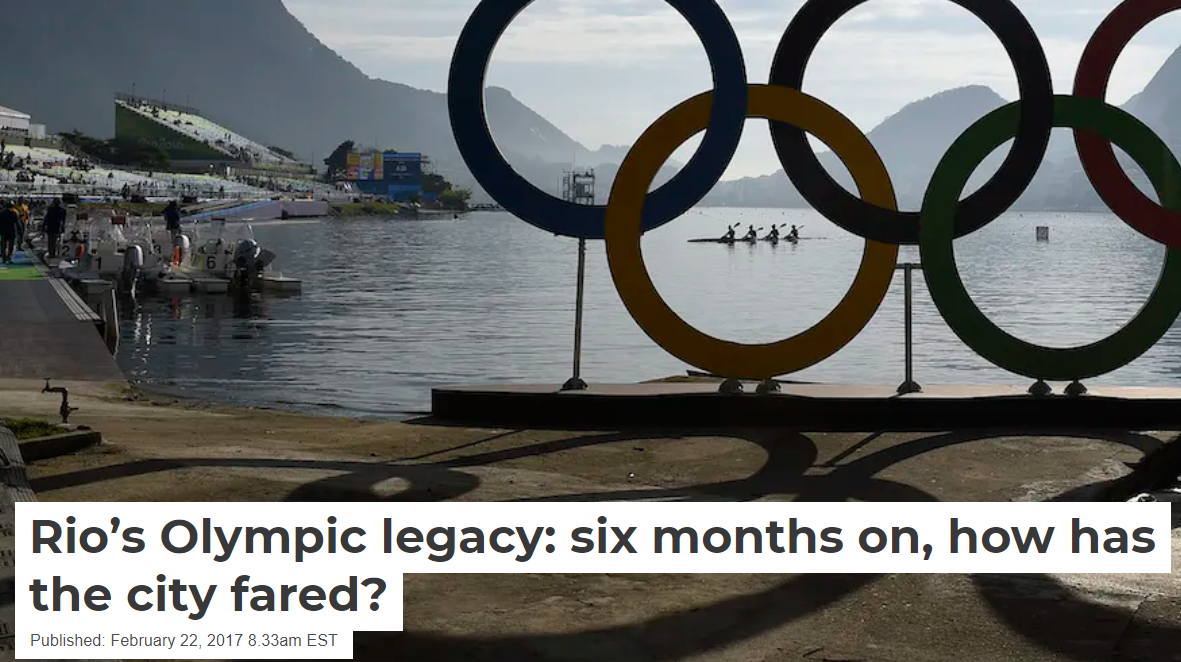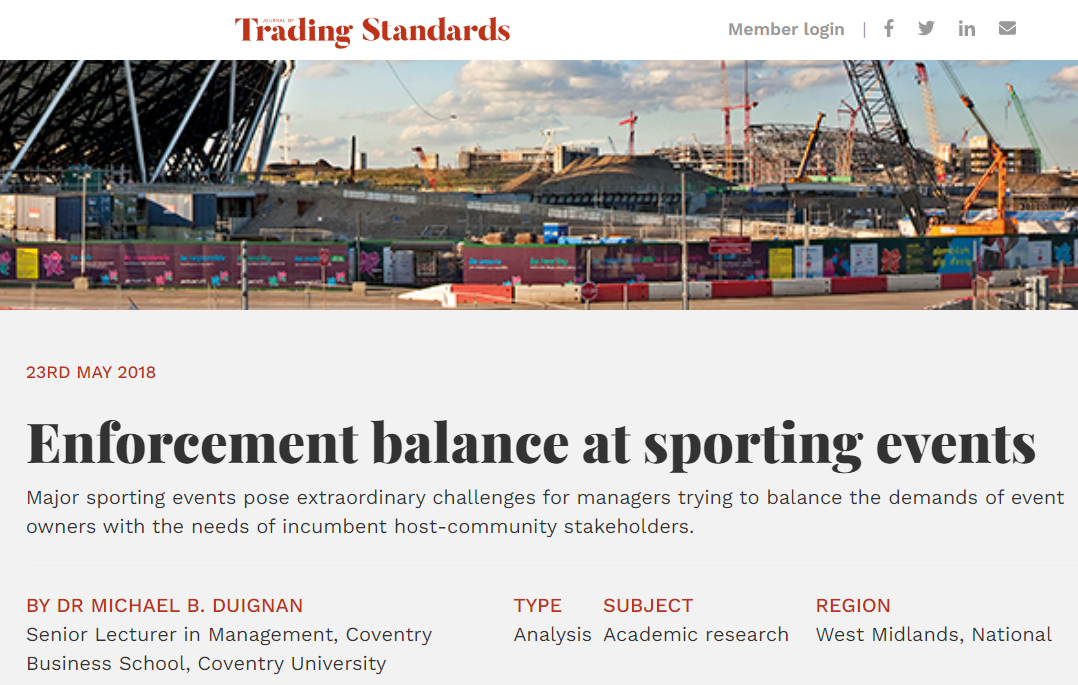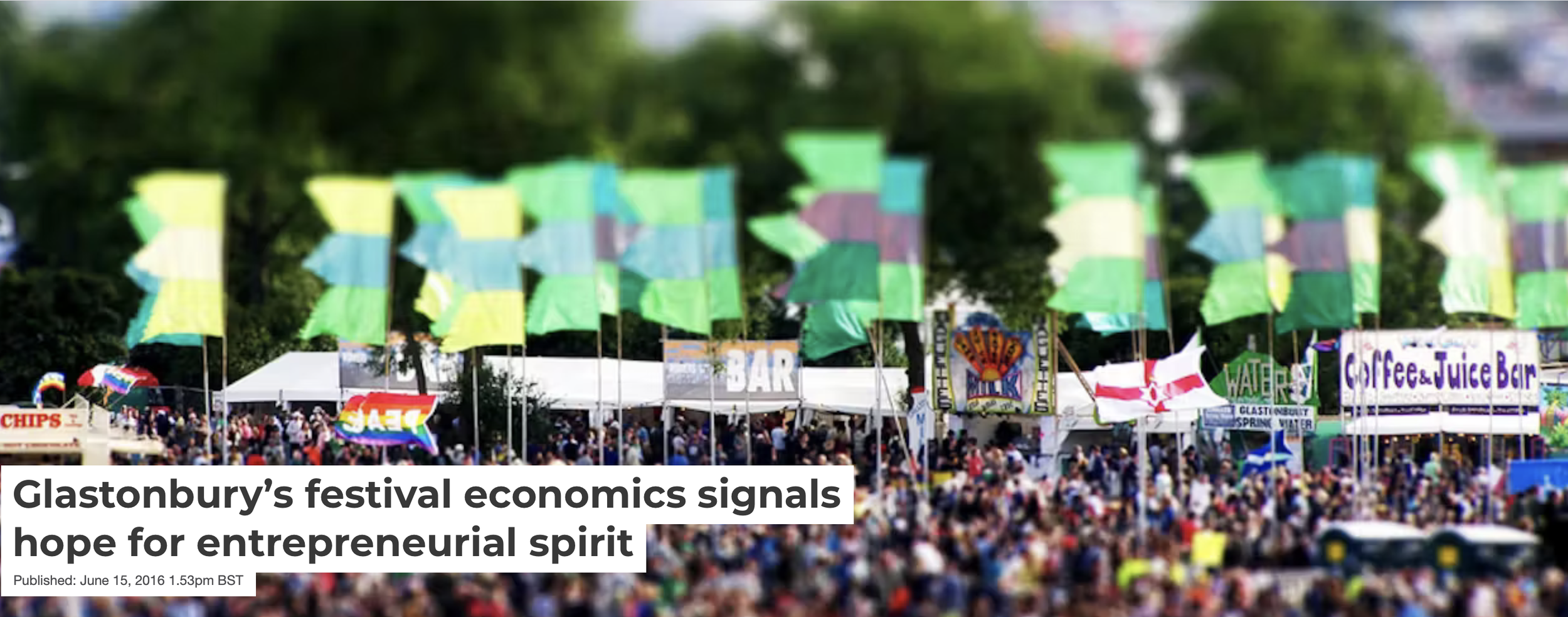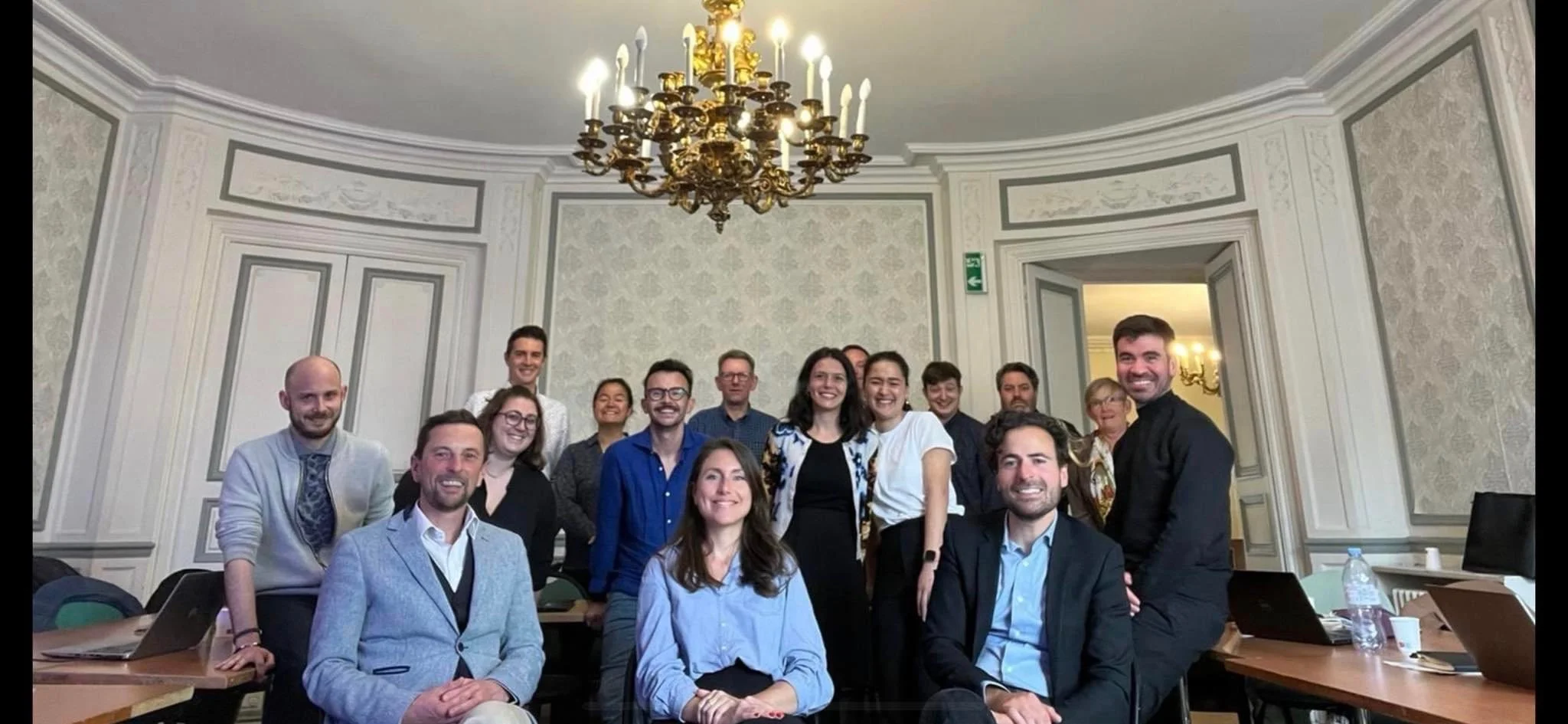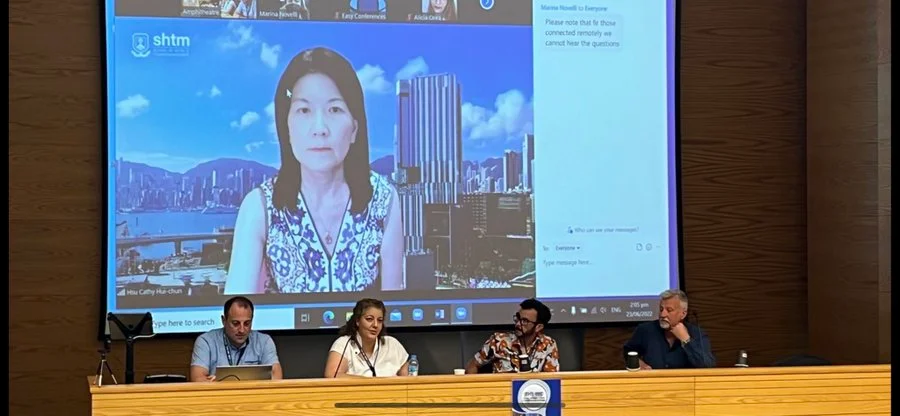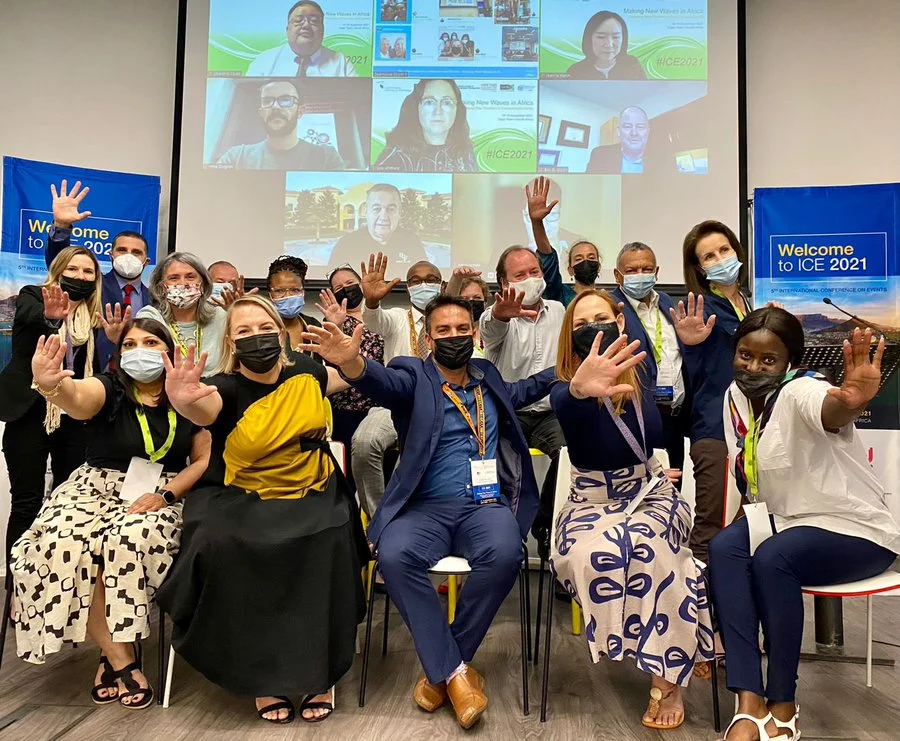THOUGHT PIECES, TALKS, media
MIKE’S PUBLIC FACING THOUGHT LEADERSHIP; MEDIA COMMENTARY; POLICY AND INDUSTRY REPORTS; TALKS, WORKSHOPS, KEYNOTES, AND MORE.
Soft power | Exclusion | Geopolitics | Tourism | Sanctions
-
Russia’s invasion of Ukraine has led to widespread exclusion from major international events, undermining the soft power strategies it once actively pursued. Events such as the FIFA World Cup and Formula One, once tools of national image-making, are now being denied to Russia, damaging both its global reputation and economy. Hosting bans have real consequences: from lost tourism revenue to diminished international visibility. As world expos and sports events symbolise unity and cooperation, Russia’s isolation from these platforms reflects growing political and cultural condemnation. In a globalised society, such exclusion has become a powerful and lasting form of international sanction.
Sustainability | Legacy | Governance | Mega-events | Collaboration
-
Ten years on, London 2012 remains a landmark in sustainable event management. Touted as a “catalyst for change,” the Games influenced public discourse and practice around sustainability, especially in East London’s regeneration. Despite some limitations, including governance complexities and inconsistent delivery, the event pioneered key frameworks—like BS 8901 and One Planet Living—and inspired future hosts. The collaborative model across public and private sectors proved transformative. Subsequent events such as #GameZero and Birmingham 2022 demonstrate that London 2012’s sustainability legacy has had enduring influence, reshaping how large-scale events are conceived, governed, and assessed in environmental and legacy terms.
Containment is by design, not accident: Event zones are spatially and symbolically engineered to keep visitors in—securing the event, but often cutting off local engagement.
Demographics don’t tell the full story: While some patterns (e.g. male visitors, group travellers) correlate with spill-out, qualitative factors like comfort, planning, and purpose are equally critical.
Designing for permeability works: Through better signage, amenities, local integration, and nudging tactics, event organisers can stimulate wider economic and cultural engagement.
Event planning must shift from passive to purposeful: To unlock real local value, organisers must move beyond assumptions and intentionally craft visitor flows—before, during, and after the event.
Event zones | Visitor behaviour | Urban tourism | Spill-out effects
-
Most event visitors stay inside the bubble: Only 7% of people attending the Cambridge Half Marathon ventured beyond the event zone, undermining assumptions about natural economic spill-over.
Containment is by design, not accident: Event zones are spatially and symbolically engineered to keep visitors in—securing the event, but often cutting off local engagement.
Demographics don’t tell the full story: While some patterns (e.g. male visitors, group travellers) correlate with spill-out, qualitative factors like comfort, planning, and purpose are equally critical.
Designing for permeability works: Through better signage, amenities, local integration, and nudging tactics, event organisers can stimulate wider economic and cultural engagement.
Event planning must shift from passive to purposeful: To unlock real local value, organisers must move beyond assumptions and intentionally craft visitor flows—before, during, and after the event.
Mega-events | Place branding | Tokyo 2020 | Post-disaster recovery
-
Japan used the Tokyo 2020 Olympics to shift global perceptions after the Fukushima disaster, intertwining recovery with global rebranding.
The Games were positioned as a dual project of physical reconstruction and symbolic national resilience.
Domestic and international campaigns, such as “Enjoy my Japan” and “Tokyo, Tokyo,” reveal how soft power is leveraged through mega-events.
Despite innovation, limitations emerged around narrative coherence, stakeholder alignment, and the global resonance of messaging.
Policymakers and event leaders must strategically align narratives with legacy goals, while embedding local voices to ensure authentic and lasting impact.
Social sustainability | Equity | Community impact | Event ethics
-
Events may entertain, but they also disrupt — socially sustainable practice requires recognising the profound impacts of events on local people and places.
Social sustainability isn’t a luxury — it’s a responsibility. Organisers must think beyond economics to include fairness, dignity, and community benefit.
Measuring social impact is messy but essential — and new low-cost methods and proxy indicators are starting to emerge.
Balancing economic goals with social justice means rethinking what counts as a ‘successful’ event — and who gets to decide.
Social sustainability is everyone's business — from funders and sponsors to volunteers and residents. It's not optional, and it’s not automatic.
tokyo 2020 analysis: MIKE QUOTED in the guardian and les echos.
Soft power | Exclusion | Geopolitics | Tourism | Sanctions
-
Russia’s invasion of Ukraine has led to widespread exclusion from major international events, undermining the soft power strategies it once actively pursued. Events such as the FIFA World Cup and Formula One, once tools of national image-making, are now being denied to Russia, damaging both its global reputation and economy. Hosting bans have real consequences: from lost tourism revenue to diminished international visibility. As world expos and sports events symbolise unity and cooperation, Russia’s isolation from these platforms reflects growing political and cultural condemnation. In a globalised society, such exclusion has become a powerful and lasting form of international sanction.
Accessibility | Field configuring events | Disability-attitude gap
-
Mega-events like Tokyo 2020 can serve as powerful catalysts to tackle physical and attitudinal barriers to accessibility for Persons with Disabilities (PwD).
Japan’s deep-rooted stigma toward disability underscores the urgent need for not just physical infrastructure, but also cultural transformation.
Tokyo’s Barrier-Free programme combined infrastructure upgrades with city-wide campaigns to raise awareness and shift public attitudes — though results remain mixed.
The ‘disability-attitude gap’ — the chasm between accessible design and social acceptance — must be closedif host cities are to meet their inclusivity commitments.
Lasting impact requires mandatory education, rigorous legacy planning, and broader definitions of disabilityembedded in event bidding, planning, and evaluation processes.
Mega-events | Field theory | Development | Legacy | Governance
-
Mega-events are not merely spectacles—they are catalysts for deep organisational and institutional change.
The CRM-FCE framework offers a new way to map how events reconfigure urban, economic, and policy fields over time.
By distinguishing between voluntary and involuntary field members, it exposes power asymmetries often hidden by legacy rhetoric.
Symbolic narratives and material resources work in tandem to legitimise, mobilise, and sustain field development.
A new approach is needed—one that is reflexive, inclusive, and capable of tracking impacts across the full lifecycle of events.
PARIS 2024 analysis: MIKE QUOTED in REUTERS, la tIMES, AND M&C ASIA.
Tourism | Mega-events | Urban planning | Culture | Tourist behaviour
-
Mega-events like the Olympics often isolate tourists in tightly controlled “double bubbles,” limiting cultural engagement and economic inclusion.
Safety concerns, commercial exclusivity, and visitor priorities collectively discourage exploration beyond official zones.
Rio 2016 illustrates how security planning and zoning constrained both tourist movement and local participation.
We propose a “Two-Way Strategy” combining local infusion and tourist diffusion to rebalance host–guest dynamics.
Event organisers must embed inclusion into contracts, transit, programming, and evaluation to build truly connected cities.
Mega-events | Local entrepreneurship | Liminality | Event design | Urban space
-
Mega-events often exclude local communities through hyper-regulated, corporate-dominated spaces—but this isn’t inevitable.
Rio 2016 revealed how weaker control can open up “liminoidal” zones that foster authentic, inclusive experiences and entrepreneurial opportunities.
Spontaneous, grassroots economic activity can enhance both visitor engagement and host-community benefit—without compromising safety or success.
The 3Cs Framework—Control, Context, and Communitas—offers a strategic model for designing more flexible, inclusive event spaces.
Event organisers must shift from rigid control to curated openness, empowering communities to co-create value through cultural expression, commerce, and connection.
Global–Glocal Paradox | Planning | Local Inclusion | Stakeholder Engagement | Sustainable Legacy
-
Large-scale events often face a fundamental tension between global ambitions and local realities, known as the Global–Glocal Paradox.
Traditional event planning tends to favour global stakeholders, marginalising local interests and exacerbating inequalities.
Event managers must shift from a resolution mindset to one of accommodation, allowing global and local interests to coexist and complement each other.
Strategies for managing the paradox include loosening formal regulations, empowering local stakeholders, fostering dual messaging, and embracing synergistic thinking to integrate both global and local needs.
Despite challenges, such as political resistance and unpredictability, these actions can create a more inclusive, adaptive, and resilient event planning process that delivers both global prestige and local benefit.
Tourism | New Urban Tourism | Mega-events | Visitor economy
-
Olympic cities often fail to distribute tourism benefits beyond centralised “event bubbles”—Tokyo challenged this pattern.
Tokyo 2020 embedded New Urban Tourism (NUT) into its planning to connect visitors with everyday life and local culture.
Strategic deregulation enabled grassroots entrepreneurship, creating new, hyper-local visitor experiences.
A new 4Cs Framework—Connection, Curation, Circulation, Co-Creation—offers a transferable model for inclusive tourism.
Future Olympic hosts can replicate Tokyo’s success by designing for decentralised, participatory, and sustainable visitor economies.
Legacy | Accountability | Mega-Events | Equity | Structural Change
-
Legacy must be planned, not presumed: Positive legacies don’t just happen — they require early vision, long-term commitment, and alignment with host city priorities.
Inequality is embedded into the current model: Benefits often flow to the already privileged, while harms — from displacement to surveillance — are disproportionately borne by marginal communities.
Legacy measurement is evolving — but still lacks teeth: Despite progress in frameworks and KPIs, legacy remains hard to define, harder to measure, and dangerously easy to manipulate.
Reform is possible — and urgent: From Paris’ social programmes to decentralised hosting proposals, new models are emerging, but need scaling, consistency, and enforcement.
A new playbook for action: Event owners, city leaders, and community advocates must co-create legacy strategies that are inclusive, accountable, and tailored to context — or risk losing public trust altogether.
Accessibility | Events | Inclusion | Universal Design | Attitude Change
-
Over time, events research has increasingly focused on the practical ways mega-events can advance accessibility for people with disabilities—not just through physical upgrades but by reshaping public attitudes. Duignan and Fyall’s study of Tokyo 2020 offers a blueprint for progress. Physically, Japan implemented universal design principles: accessible transit systems, audible signals, tactile paving, and barrier-free infrastructure in venues and public spaces. Just as important were attitudinal interventions, including nationwide awareness campaigns, inclusive media representation, and stakeholder training to challenge ableist norms. Their findings show that mega-events can drive systemic change by embedding accessibility into the planning process, mandating inclusion clauses in host city contracts, and engaging diverse stakeholders—especially disabled communities. When such strategies are embedded from the start, events don’t just comply with accessibility standards; they become platforms for shifting societal mindsets, dismantling stigma, and setting long-term benchmarks for inclusive tourism policy and practice.
Events | Tourism | Legacy | Social Impact | Field Configuring Events
-
Over the past thirty years, events research has evolved from narrowly focused economic impact studies to a rich, interdisciplinary field exploring the broader social, cultural, and spatial dimensions of events. Initially, research centered on measuring visitor numbers, revenue, and satisfaction—tools to maximize returns for organisers and destinations. However, since the early 2000s, scholars have increasingly examined events through sociological, anthropological, and critical lenses, questioning their influence on identity, place-making, community, and representation. This shift has revealed events as complex, dynamic, and contested spaces, impacting not just economies but also the social fabric of host communities. Researchers now explore themes such as social memory, inclusivity, environmental sustainability, and the lasting legacies of events. The study of Field Configuring Events (FCEs) further highlights events as temporary yet transformative arenas that shape industries, ideas, and geographies. This evolution has established events research as a vital contributor to tourism and hospitality scholarship and policy.
Displacement | Gentrification | Regeneration | Legacy | Exclusion
-
This article exposes the disruptive and often damaging effects of hosting the Olympic Games on local lives and livelihoods. While mega-events are marketed as catalysts for urban regeneration and economic growth, they frequently result in displacement, gentrification, and social exclusion—particularly for low-income and vulnerable communities. Using examples from Rio 2016, London 2012, and Tokyo 2020, the authors show how planning processes displace residents long before the Games begin, while event-time restrictions isolate local businesses and residents from economic benefits. Post-Games legacies often include underused “white elephant” infrastructure and rising living costs that force long-term residents out. The piece critiques the International Olympic Committee's urban model, arguing that Olympic-led development tends to favour global capital over community wellbeing. The article calls for systemic reform to prioritise inclusive, equitable, and sustainable urban futures—warning that public support for the Olympics is increasingly at risk without real change.
Entrepreneurship | Legacy | Inclusion | Social Capital | Olympics
-
This IOC-funded report investigates how Olympic Games can foster a long-term legacy of entrepreneurship—particularly social entrepreneurship—in host cities. Based on detailed research in Rio de Janeiro and London, the study explores how individuals and communities, especially in deprived areas, engage with Olympic opportunities to launch ventures addressing social issues. The central contribution is the “4Es Framework”: Engage, Enable, Empower, and Extend. This framework outlines how host cities can move beyond one-off interventions to deliver inclusive, measurable legacy plans that build entrepreneurial capacity and resilience. The report demonstrates that entrepreneurship legacies require early engagement, sustained post-Games support, and intentional inclusion strategies. It also highlights barriers—such as displacement, gentrification, and lack of access to networks—that inhibit equitable benefit from mega-events. The research contributes practical recommendations for Olympic governance, policy makers, and urban planners to help ensure the Games empower local communities rather than marginalise them.
Tourism | Legacy | Branding | Mega-events
-
This article critically evaluates the long-term benefits of hosting the Tokyo 2020 Olympics, despite the economic setbacks caused by COVID-19 and the absence of spectators. While Japan lost anticipated tourism revenue, the Games catalysed significant structural reforms. Drawing parallels with Tokyo 1964, Duignan highlights how mega-events can drive urban redevelopment, national branding, and social change. Key initiatives such as “EnjoymyJapan” and “Tokyo, Tokyo” repositioned Japan’s tourism appeal post-Fukushima, leading to a surge in foreign visitors before the pandemic. Moreover, infrastructural upgrades—like more accessible train stations—and campaigns like “Unity in Diversity” aimed to improve physical and attitudinal accessibility for people with disabilities. These developments reflect how Olympic hosting can spur long-term social, economic, and cultural transformations. Even without visitors, the Tokyo Games contributed to reshaping Japan’s global image and tourism trajectory, offering lessons for future hosts on leveraging mega-events for inclusive, legacy-driven outcomes.
MIKE DELIVERS KEYNOTE AT THE INTERNATIONAL CONFERENCE ON EVENTS: “THE FUTURE OF SOCIAL SUSTAINABILITY AND MAJOR EVENTS ”
MIKE DELIVERS KEYNOTE AT THE EUROPEAN SPORT MANAGEMENT CONFERENCE ON:
“THE FIELD CONFIGURING POWER OF EVENTS AND FESTIVALS”
Disability | Legacy | Austerity | Inclusion | Paralympics
-
This article by Ian Brittain, Mike Duignan, and Verity Postlethwaite critically examines the legacy of the London 2012 Paralympic Games. While the Games elevated Paralympic sport and visibility—boosting elite funding, political representation, and education initiatives—these advances failed to translate into meaningful improvements in the lives of most disabled people. The authors argue that London 2012's promise to reshape societal attitudes and increase community participation for disabled citizens was undermined by austerity policies, benefit cuts, and systemic exclusion. Despite intentions grounded in the social model of disability, post-Games policies left many worse off—financially and socially. Paralympic success became symbolic rather than structural. The authors highlight campaigns like WeThe15 as necessary counterweights to legacy rhetoric, calling for sustained policy, funding, and societal change beyond mega-event moments. The article underscores the limits of visibility-driven inclusion when structural barriers persist, and urges future Olympic hosts to confront inequality in more than just spectacle.
Sponsorship | Public Space | Community Inclusion | Live Sites
-
In this article, Mike Duignan and David McGillivray explore how Rio 2016 balanced the demands of Olympic sponsors with more inclusive uses of public space, especially through its flagship live site at the Olympic Boulevard. Unlike the heavily restricted and corporatised zones of London 2012, Rio’s fan park created a more open, street festival-like atmosphere, where official branding coexisted with local food, art, and entrepreneurial activity. The authors explain that while the International Olympic Committee (IOC) imposes strict commercial and spatial controls on host cities, Rio’s live site carved out space for small businesses and local culture alongside corporate sponsors like Coca-Cola and Samsung. Although security and commercial influence were still evident, the Rio model marked a shift toward more democratic and culturally authentic event spaces. The study suggests that host cities can push back—albeit subtly—against Olympic standardisation, offering a more community-focused experience within the framework of global sponsorship obligations.
Legacy | Gentrification | Displacement | Tourism | Regeneration
-
This article critically examines whether Tokyo 2020 delivered lasting benefits to local communities, a key promise in modern Olympic legacy narratives. Despite legacy rhetoric, the Games triggered significant displacement and gentrification. Traditional neighbourhoods and small businesses were replaced by corporate developments and rising rents, undermining the cultural authenticity vital to Tokyo’s tourism appeal. The authors argue that while legacy frameworks justify Olympic investments as long-term gains for citizens, in practice, local people are often excluded from benefits and even pushed out of redeveloped zones. The so-called "Olympic effect" accelerates urban transformation in ways that favour economic elites over vulnerable groups. As Tokyo passes the baton to Paris 2024 and Los Angeles 2028, the authors call for future hosts to prioritise protecting local communities, warning that failure to do so undermines both the legitimacy and the sustainability of Olympic-led regeneration.
Volunteering | Legacy | Community Engagement | London 2012
-
This article by Mike Duignan and Niki Koutrou critically examines why the London 2012 Olympics failed to generate a lasting legacy of volunteering across the UK. While 70,000 "Games Makers" supported the event—many volunteering for the first time—the enthusiasm did not translate into sustained community engagement. Despite initial hopes that Olympic volunteering would lead to increased civic participation and employment, post-Games efforts like the “Join In” programme were poorly communicated and underfunded. The authors argue that the organising committee prioritised short-term operational success over long-term legacy planning. Research shows that most volunteers continued only if personally motivated, rather than through coordinated national strategies. Moreover, the Games Maker demographic skewed toward white, middle-class, employed individuals, leaving marginalised communities underrepresented. The article concludes that for volunteer legacies to succeed, they must be integrated into broader social development strategies, be properly resourced, and remain a strategic priority after the closing ceremony.
Sanctions | Sportwashing | Neutrality | Tennis | Politics
-
This article by Leon Davis and Mike Duignan explores the political controversy surrounding the participation of Russian and Belarusian tennis players at the 2022 French Open, contrasting it with their ban from Wimbledon the same year. The French Open allowed players to compete under a neutral flag, aligning with broader EU sport ministry guidelines, while the Wimbledon ban sparked backlash from athletes and the International Tennis Federation, which responded by stripping the tournament of ranking points. The article situates the debate within the broader context of sport and politics, noting how global sporting events have long been used to convey powerful political messages—from protest and resistance to propaganda. The authors argue that inconsistent tournament policies risk undermining the symbolic and practical impact of sport-based sanctions. The article underscores the tension between protecting individual athletes’ careers and upholding collective political stances during wartime, while calling for coordinated, ethically grounded sport governance.
Evictions | Legacy | Regeneration | White Elephants | Gentrification
-
Six months after the Rio 2016 Olympics this article assesses the event’s contested legacy. While the Games sparked extensive urban regeneration, they also deepened social inequalities and left behind underused infrastructure. The article highlights how Rio’s Olympic planning bypassed democratic processes, leading to the eviction of over 22,000 families—mostly from favelas—to make way for venues and transport projects. Many Olympic facilities have since fallen into disrepair, symbolising the “white elephant” phenomenon. However, one bright spot is Porto Maravilha, now a thriving cultural hub and public space, demonstrating the potential for legacy success when urban renewal prioritises community use. Yet, even this transformation raises concerns about gentrification and displacement. The authors argue that event-led development must be carefully managed to avoid exacerbating exclusion. Rio’s experience underscores the urgent need for host cities to adopt more equitable, transparent, and locally responsive approaches to Olympic legacy planning.
CONTRIBUTION TO A UNITED NATIONS REPORT ON HOW URBAN CITIES CAN OVERCOME CHALLENGES ASSOCIATED WITH OVERTOURISM.
two articles written for uk trading standards on the discretionary power regulators have to enable small business to benefit from the brand benefits of hosting major events.
Festivals | Entrepreneurship | Identity | Economic impact | Inclusivity
-
Festivals and events—from global mega-events to local artisan markets—play a significant role in economic development, cultural identity, and community regeneration. Events like Glastonbury showcase their dual impact: generating millions in direct spend while fostering social cohesion, entrepreneurialism, and place-making. As traditional high streets face homogenisation, festivals offer critical platforms for small producers and cultural expression, aligning with “slow tourism” and decentralised economic growth. Yet, growing concerns about affordability and accessibility risk transforming these inclusive spaces into arenas of cultural exclusivity. The challenge is to maintain diversity and inclusion while leveraging events as tools for sustainable regional and national development.
Soft power | diplomacy | isolation | autocratic regimes | exclusion
-
· Russia’s exclusion from global events reveals how sport and culture now function as strategic tools of isolation.
· Events once seen as politically neutral are increasingly leveraged to deny legitimacy to autocratic regimes.
· Exclusion carries measurable economic consequences, from lost tourism to damaged global reputations.
· Inconsistencies and ethical dilemmas—especially around collective punishment—undermine the credibility of exclusion policies.
· Leaders must apply exclusion consistently, transparently, and with clear safeguards to protect event legitimacy and global cooperation.

